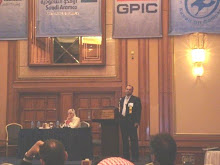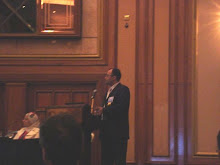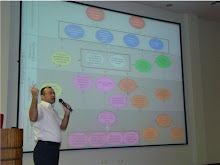This posting represents a hypothetical example occurring in a construction organization।It demonstrates how system thinking facilitates problem solving when they both integrate to augment organisational learning.
Problem Statement: loss of resources is encountered due to rework and lack of coordination with stakeholders। Impact on profitability and team morality is evident; projects encounter more scope creep and schedule slippage।
Organisational Response: based on discussions, formal meetings, analysis and the like, PMO recommended more communication and early involvement with stakeholders by establishing multi-organisational teams during the early project phases। Perform team building processes to augment rapport and improve productivity (PMGT6869, 2004; Padilla, 2005; Schwartz, 2003)। Teams to recommend alterations to designs and project plans during initiation, then review progress execution reports among all parties with ‘fresh eyes’ to proactively identify problems and recommend actions।
Outcome: problems are now early identified, reduced rework, stakeholders’ committed to solving problems, increased profitability and enhanced project teams’ morality।
Unanticipated feedback Loop: Unethical behavior of some members that were building relationships with stakeholders for personal benefits (Flynn, 2003; Brigley, 1995)। The archetype in figure below captures the problem situation (Wolstenholme, 2003)

Problem Archetype adopted from Wolstenholme, 2003
Solution to decrease impact of UC feedback loop: Applying system thinking approach to look at the big picture and problem context (PMGT6869, 2005)। A suggested solution archetype was developed to undermine the effect of Unintended Consequence feedback loop as shown below (Wolstenholme, 2003)
 Solution Archetype adopted from Wolstenholme, 2003
Solution Archetype adopted from Wolstenholme, 2003
Recommended Actions:

Learning from this experience: Future developments/proposals/solutions to proactively respond to prospective UC feedbacks.
In conclusion, the above mentioned actions were optimum। Applying them reduced the risks associated with this situation and enhanced desired results from multi-organisational teams’ establishment।
Regards,
Samer

 Solution Archetype adopted from Wolstenholme, 2003
Solution Archetype adopted from Wolstenholme, 2003

















